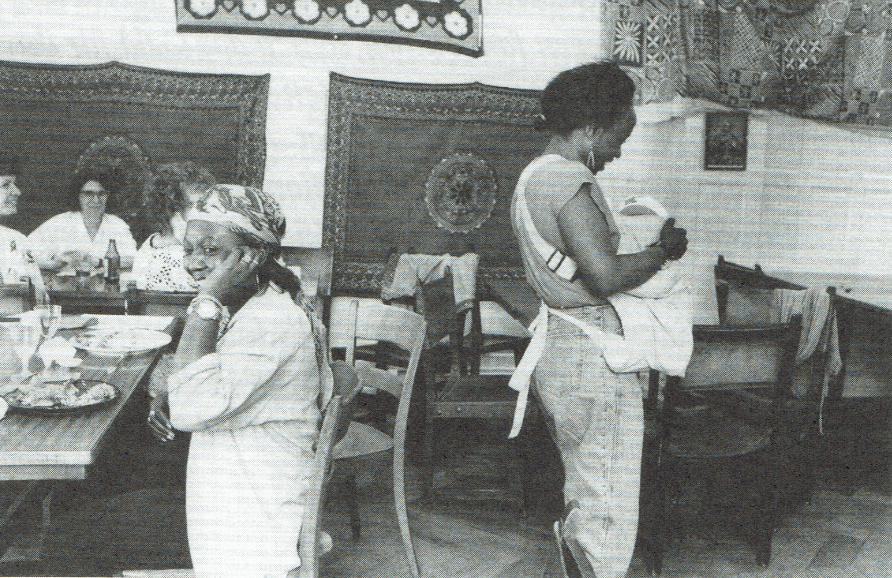Safe space: Worlding archives of the Treffpunkt Schwarzer Frauen in Zürich (1980s-2010)
Khensani Jurczok-de Klerk (she/her)

Safe space: Worlding archives of the Treffpunkt Schwarzer Frauen in Zürich (1980s-2010)
Whilst many initiatives in Zurich that emerged in the 1970s were critical for the progress of women’s liberation energised by the 1971 Swiss Women’s Suffrage, these projects often overlooked the intersectional experiences of racialised foreign women. This research explores how intersectional feminist practices have shaped and inhabited space, examining how Black foreign women in Zurich have constructed forms of kinship to create liveable geographies in the wake of racial-sexual violence since the 1980s.
The Treffpunkt Schwarzer Frauen in Zürich (1993–2010) stands out as an exceptional case in the history of the women’s libration in Switzerland in that by providing a meeting place and resource centre for Black women, it served as an opening for often isolated women to access a wider constellation of social and cultural infrastructure, all at once facilitated by the provision of a physical space. This research proposes to understand the Treffpunkt Schwarzer Frauen as a safe space infrastructure, illuminating how resources such as domestic labour, social support, finance and legal aid were assembled, channeled and shared by Black foreign women in the city. What lessons might we learn from these forms of kinship that liberate and emancipate women from conditions of hostility and violence, reimagining safe space as affirming and empowering?
Since 2010, the Treffpunkt Schwarzer Frauen no longer exists and no perceivable architectural traces can be found where it stood. The archive of it’s life sits in the mouths of those who frequented it, lingers in personal photo albums, and appears scarcely in publicly accessible texts. As such, this PhD has two key ambitions. First, it is to construct a spatial archive of the Treffpunkt Schwarzer Frauen by excavating and assembling the oral histories that shaped this space, ultimately illuminating it’s historical significance and making it’s cultural heritage accessible. Second, it is to propose a voiced and visual method for spatially remembering places that have left little to no architectural traces. Both ambitions — remembering and constructing — are carried through an ontological process of reconstruction, which I suggest offers a way to account for what was, what could be and what holds; by way of iterating, recalling and worlding the spatialities that made up the Treffpunkt.